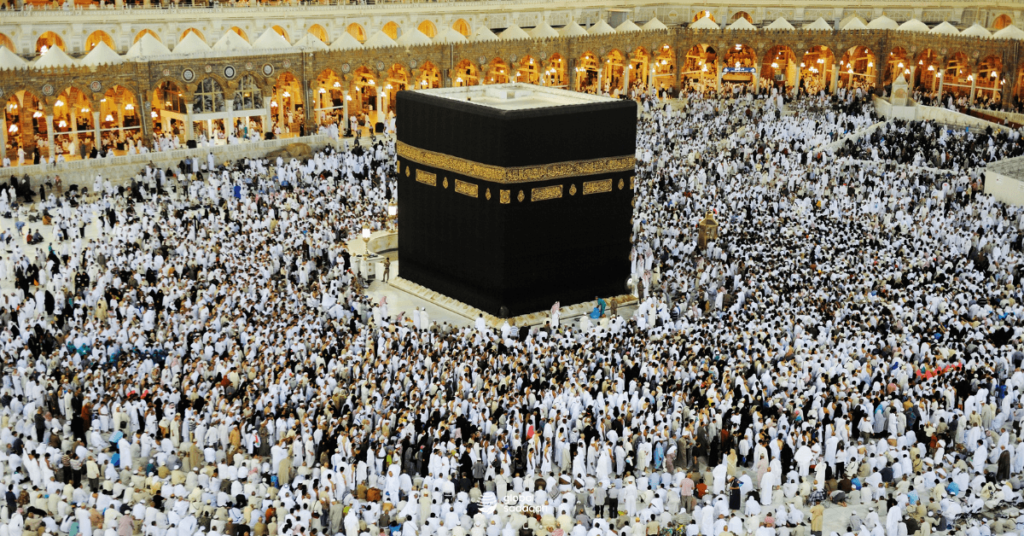It’s the Hajj and qurban season again, which means you are probably seeing plenty of qurban ads on social media or Google for the past couple of weeks, if not months. It also means that Eid al-Adha is just around the corner! As Muslims look forward to celebrating Eid al-Adha with their family and sharing the joy of relishing qurban meat with the less fortunate, let’s understand the differences between Eid al-Adha and Eid al-Fitr.
We’ll begin with the definition of Eid.
What is the meaning of Eid al-Adha and Eid al-Fitr?
Eid is an Arabic word that means ‘feast’, ‘festival’, or ‘holiday’. Eid al-Adha means the festival of sacrifice, which commemorates the divine sacrifice of Prophet Ibrahim while Eid al-Fitr means the festival of breaking the fast, which marks the end of Ramadan, the month of fasting.
When do Muslims celebrate Eid al-Adha and Eid al-Fitri?
Muslims celebrate Eid al-Adha and Eid al-Fitri every year. These two Eids are the two major Eid celebrations in the Islamic calendar.
As opposed to Gregorian calendar which is based on the solar year (the time it takes Earth to orbit the sun), the Islamic calendar, also known as Hijri calendar, is based on the lunar year. It revolves around the 12 cycles of the Moon that take about 354 days to complete. In the Islamic calendar, Eid al-Adha falls on the 10th of Dhul Hijjah every year.
On the other hand, Eid al-Fitr is celebrated on the first day of Shawwal, the month after Ramadan. The celebration will always take place two months before Eid al-Adha because, in the Islamic calendar, the month of Shawwal comes two months before Dhul Hijjah.
Related: 10 Deeds to Practice in the First 10 Days of Dhul Hijjah
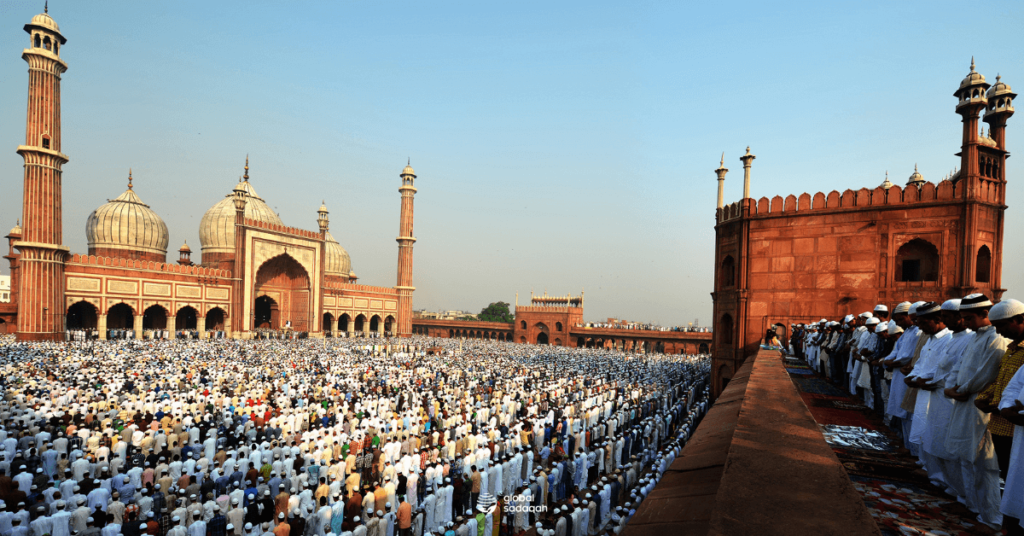
Significance of Eid al-Adha and Eid al-Fitri
Eid al-Adha: The story of divine sacrifice
Eid al-Adha is not just a celebration for Muslims but it commemorates the greatest divine sacrifice in history. In his dream, Prophet Ibrahim was told by Allah to sacrifice his son, Prophet Ismail. At first, he thought it was the devil playing tricks on him and disregarded it but when the same dream reappeared the next night, he understood that it was a message from Allah.
Following the dream, he took his son to Mount of Arafah and explained to him what he was about to do unto him. Upon learning about the dream, Prophet Ismail surrendered himself to the wish of Allah and asked his father to tie his hands and his legs so he may not struggle and that the father blindfolded himself.
In obedience and full submission to Allah, Prophet Ibrahim proceeded to sacrifice his most beloved son, Prophet Ismail, whom he was only bestowed upon in his old age, after many years of longing for a child. To his surprise, when he undid the blindfold, he saw that Allah had replaced the son with a ram as a qurban (sacrifice), and his son was left unharmed. It was such a divine miracle and a test from Allah to His beloved servant, in which Prophet Ibrahim had passed with flying colours.
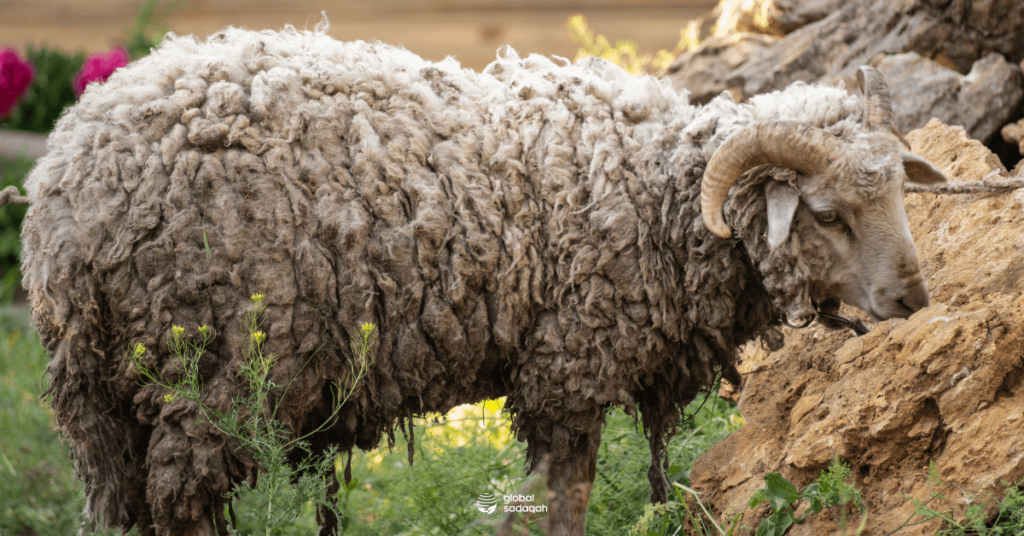
Taking away the ibrah (lessons) from the divine sacrifice, it is sunnah muakkadah (highly recommended) for Muslims to offer qurban during Eid al-Adha.
Related: What are the differences between Qurban and Aqiqah?
Eid al-Adha also marks the end of Hajj, the fifth pillar in Islam. Hajj is an act of worship where Muslims make a pilgrimage to the holy city of Makkah in Saudi Arabia. It’s wajib (obligatory) for Muslims who have the means to do it, to carry out the act once in their lifetime.
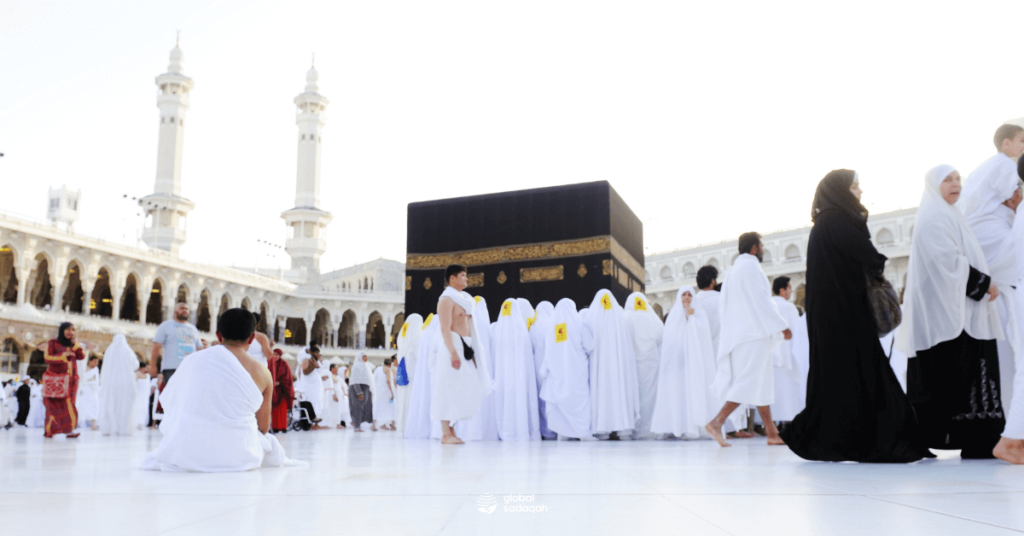
Eid al-Fitri: The celebration of victory
Separately, Eid al-Fitri is a joyous occasion for Muslims. It’s a celebration of victory as Muslims triumph over their worldly desires and abstain from eating and drinking from sunset to sunrise throughout the fasting month of Ramadan, in order to seek the pleasure of Allah.
It’s the most significant season for Muslims around the globe, with families getting together and visiting one another.
Related: How do Muslims around the World Celebrate Eid
On both Eids, Muslims are forbidden from fasting but are highly encouraged to perform sunnah congregation prayers. The Eid prayers consist of two raka’ahs, which begin with no adhan or iqamah and end with a khutbah.
Lessons from the two Eids
Muslims enjoy the Eid celebrations not only with their family members and friends but also with fellow Muslim brothers and sisters who are less fortunate than them.
Following the teaching of Islam, those offering qurban during Eid al-Adha will preferably share the meat in three portions. One portion for themselves, one for their family and friends, and the other one for those deserving.
Meanwhile, at the end of Ramadan, before Eid al-Fitr begins, every individual Muslim who fulfils certain criteria is required to pay zakat al-Fitr. It symbolises gratitude to Allah for the opportunity to experience the blessed month of Ramadan while also sharing a portion of our rizq with those who are in need.
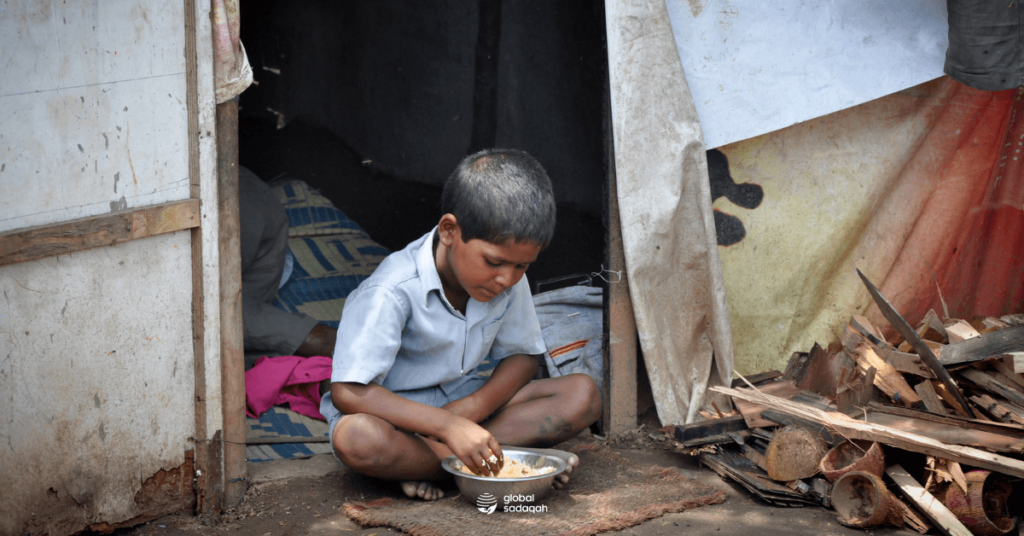
The concept of sadaqah (charity) in Islam is wholesome. It leaves no one behind through Islamic brotherhood cultivated for the sake of Allah while rewarding the upper hands with the deeds.
Global Qurban Campaign
This Eid al-Adha, let’s join our hands in extending qurbani meat to the most vulnerable communities around the world. Offering qurban is sunnah muakkadah. It is a highly recommended act for those Muslims who could afford it.
The Prophet ﷺ said, “Whoever can afford it, but does not offer a sacrifice, let him not come near our prayer place.” [Sunan Ibn Majah]Spread smiles and bring food relief across the world by offering your qurban via our Global Qurban Campaign!
